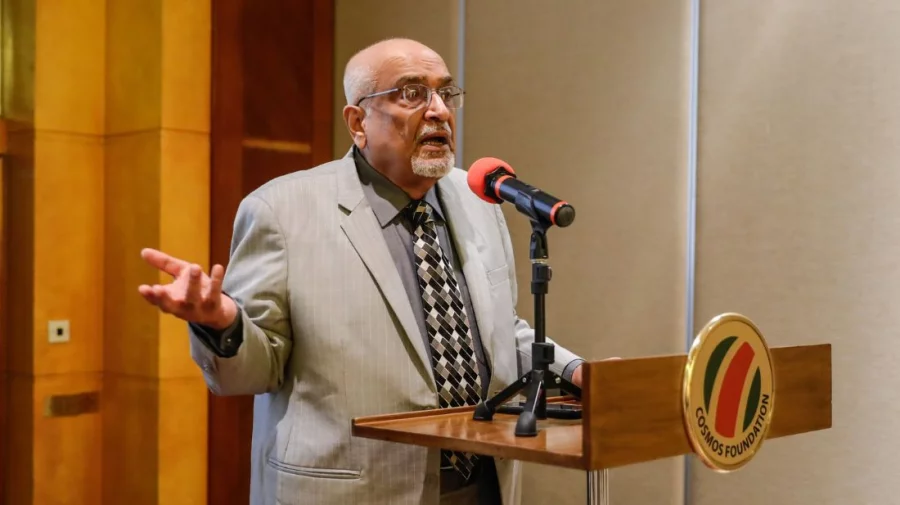Brushing aside skepticism over the reciprocal tariffs imposed by the US, noted economist Debapriya Bhattacharya has called for stakeholders not to be cynical about the situation that may not have such a severe impact in reality.
The distinguished fellow at the Centre for Policy Dialogue (CPD), said this while presenting a keynote paper at a seminar titled ‘US Reciprocal Tariffs and Bangladesh’s Action Plan,’ hosted by Dhaka Chamber of Commerce and Industry (DCCI).
“In trade economics, there are no permanent enemies. The US and China have already begun reaching an understanding. So, the level of concern being expressed over potential tariffs on Bangladesh are exaggeration of the reality.”
“If the US imposes tariffs on us, it will also hurt their own interests by increasing import costs. Tariff pressure affects both sides. Therefore, instead of panicking, we must take realistic preparations,” added Debapriya.
“I say this with full responsibility; the impact of these tariffs is also being felt by our competitors. As a result, we are not losing significantly in comparative competition,” he continued.
Debapriya termed the US reciprocal tariffs a form of “toxic tariff treatment” and said political motives outweigh economic rationale in the move by the new US administration.
He also expressed doubt about the effectiveness of Donald Trump’s tariff policy. He doesn’t believe the objectives behind the policy will be achieved, as the market will not respond positively.
He pointed out that the policy used to impose reciprocal tariffs is not completely right from the economic point of view. They are imposing tariffs as per trade deficits with the respective countries. But the growth of the service sector is much higher in current reality. It means they did not consider the entire trade.
Besides, the existing trade deficit may not sustain in the next year, he said, adding that if the US revises the tariff every year, there will be no stability required for investment.
The economist further said if a policy lacks economic rationality, it becomes difficult to ensure its sustainability, as the market does not accept it. He, however, emphasised that the crisis could be the moment to implement long-discussed economic reforms.
Commerce secretary Mahbubur Rahman was the chief guest, while International Chamber of Commerce (ICC) Bangladesh president Mahbubur Rahman and Bangladesh Trade and Tariff Commission chairman Mainul Khan were special guests at the seminar.


